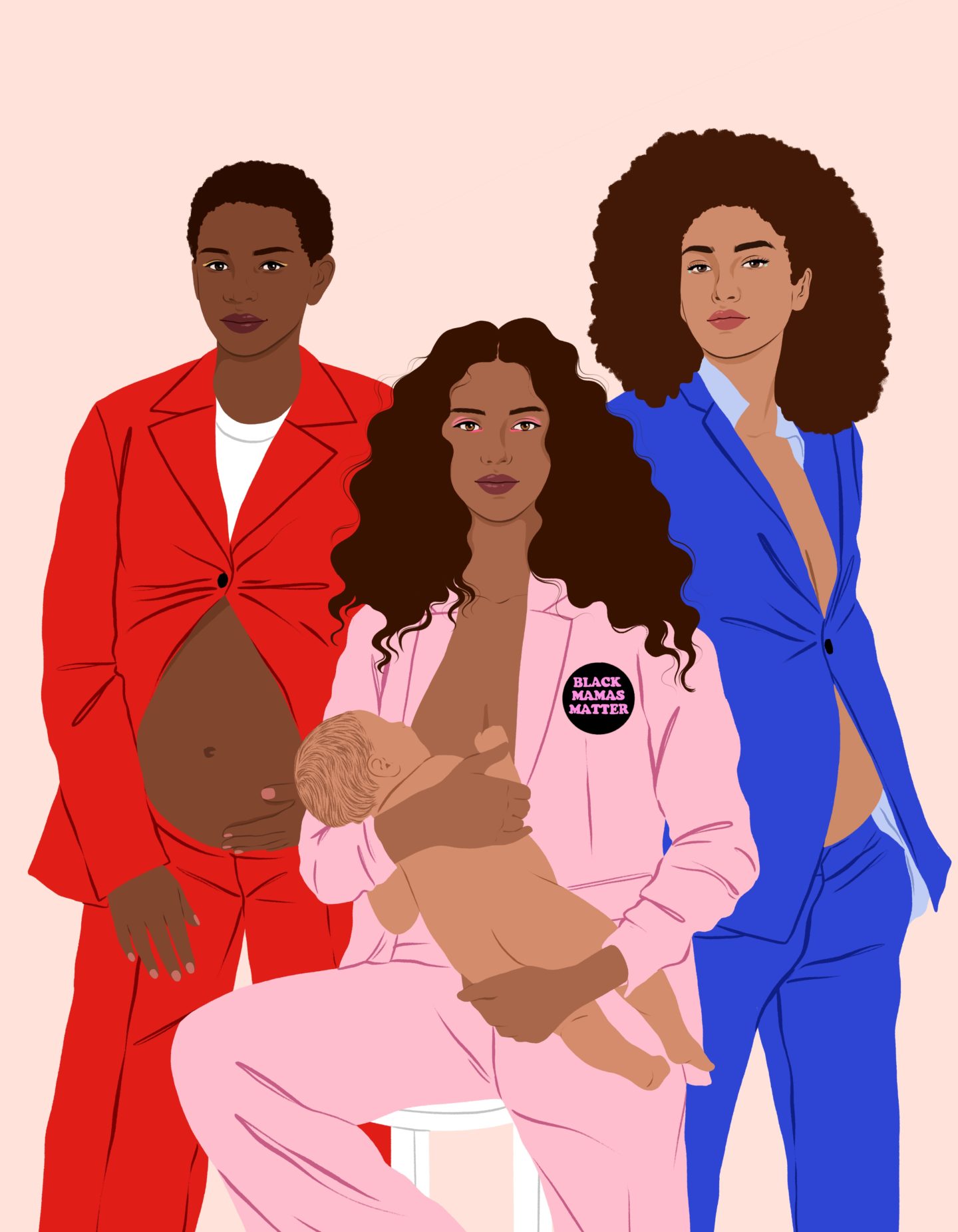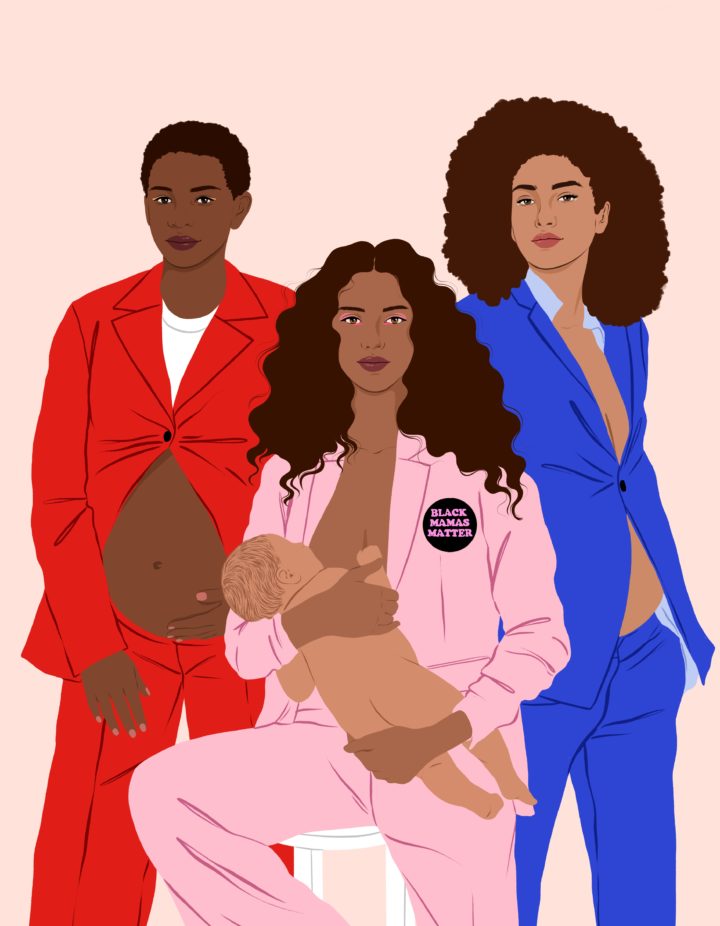Welcome to a conversation about the powerhouse that is United States of Care (USofCare). Imagine a space where people, politics, and policy come together to truly listen—yes, listen loudly—to the voices of everyday Americans. At USofCare, the mission begins with understanding the real challenges faced by individuals across the country. One resounding concern? The maternal health crisis. Enter the 100 Weeks Project, the organization’s holistic initiative capturing the entire maternal health journey, from pre-pregnancy to a year postpartum. They’re not just talking about healthcare solutions; they’re revolutionizing how we support and uplift mothers through every step of their journey. Here, we chat with Venice Haynes, PhD, Senior Director of Research and Community Engagement at United States of Care, about the trends, the innovations, and the unwavering support that’s reshaping maternal health for the better.
Can you tell us a little bit about United States of Care?
At USofCare, we operate at the intersection of people, politics, and policy. That means we listen to people – or as we like to say, ‘listen loudly ’ to people – first before we do anything else. Then we take that listening work and innovate to develop policy solutions and partner with others to ensure our health care system works for everyone. And when we listened to literally tens of thousands of people across the country to understand how the healthcare system was failing them, the maternal health crisis always came up in conversation. Our work in this space—what we’re calling the 100 Weeks Project—offers a holistic approach to capturing the entire maternal health journey, from the time leading up to pregnancy to one year postpartum, in order to find comprehensive solutions to the maternal health crisis that encompasses the entirety of a woman’s journey.
What are some of the trends you’ve learned on maternal health from your listening work?
One trend we heard from our listening is that women need more support after their pregnancy and during the postpartum period, where they feel their care and assistance are severely diminished. Women said they felt overwhelmed, lost, and lonely during postpartum. They didn’t receive enough information on what to expect or where to go for resources from healthcare providers, so they navigated this period by relying on themselves and sometimes their community. They experience postpartum mental health struggles but have little to no knowledge of how to cope and get help and may even fear repercussions if they reach out to their healthcare professional – like, for example, a provider calling child protective services. And the barriers to getting the care she needs include racism, insurance coverage, income, geographic location, and more.
Specifically for Black women, some trends we also heard include the anxiety they feel when finding out they’re pregnant and wondering if their doctor is giving them the best care because of the identity, the sheer loneliness after giving birth – the feeling as if she can’t even recover from the birthing experience because she still has to take care of her family and her community, and the feeling like they don’t have much help (not from doctors, or mental health professionals, or sometimes even partners or extended family).
USofCare recently released a report that looks at how programs and practices are innovating to improve Black women’s journeys towards motherhood. What are some of the programs that seem the most promising?
There are some really promising innovations out there. From private employers and businesses to policy, four trends stood out amongst these programs and innovations.
Maternal health community-based organizations are identifying diverse and creative funding streams for sustainable programs and services. For example, Everyday Miracles in Minnesota was able to partner with HealthPartners – a health system in Minneapolis – to accelerate the timeline for paying claims, offer a higher payment rate than the state minimum, and provide grant funding to train more doulas of color. These improvements allowed Everyday Miracles to offer families more access to doula services.
Maternity care models include equity as an explicit goal. Some quality improvement initiatives in hospitals and health care systems have improved their overall maternal outcomes, but have not narrowed racial disparities – this has led hospitals and health systems to incorporate equitable outcomes for Black women as an explicit program goal.
States and community-based organizations are building capacity and cultural responsiveness in maternal mental health care. Shades of Blue Project in Houston, TX is focused on improving maternal mental outcomes for Black and brown women, and offers online support groups for Black women and I.N.S.P.I.R.E. method training for doulas, midwives, and other providers to provide compassionate care for women of color.
The private sector is using virtual care to expand access to maternal health care and services. Maven Clinic is a virtual clinic for women and families that works with employers and health plans to provide access to different care providers, including OB/GYNs, midwives, doulas, and more. Maven’s research found that Black members were more likely to seek virtual care than white members, over a third of Black members had an appointment with a doula.
Although not given nearly as much attention, we know that the postpartum period is critically important for a new mom’s physical and mental well-being. Why is it so important that we don’t ignore this period for new moms?
The postpartum period is a critical chapter in the maternal health journey, impacting a woman’s health, well-being, and overall experience. Our listening work tells us that women need more support after their pregnancy, where they feel their care and assistance severely diminished. Improving care during the postpartum period, when most maternal deaths occur, can reduce maternal mortality and morbidity, lay the foundation for better physical, mental, emotional, and social well-being for the mother, and improve the overall maternal health experience.
What are some of the programs and practices that are innovating health care delivery in the postpartum period to support the physical and mental well-being of Black women?
Oshun Family Center in Philadelphia, PA, provides a culturally and racially concordant, community-based perinatal wellness program to Black families. The center provides a comprehensive evaluation with a psychotherapist and offers 12 free therapy sessions if it is determined that the mother could use psychological support.
The Bloom Collective is a perinatal wellness center that provides classes and 1-1 consultations from preconception through postpartum. They offer virtual postpartum support groups, postpartum doula care, and lactation consultations to support mothers.
Your report also had some interesting findings around technological innovations from virtual care to review apps. Can you share some of these examples?
BabyScripts is a virtual platform and app that offers comprehensive maternity care and remote patient monitoring. The app provides access to the person’s care team, pregnancy education, risk assessments, and more. Babyscripts improved postpartum attendance rates and eliminated racial disparities observed in-office blood pressure collection between white and Black patients for postpartum hypertension.
Health in Her HUE is a digital platform that connects Black women and women of color to culturally sensitive healthcare providers, evidence-based health content, and community support with free and paid membership options.
Irth is a “Yelp-like” hospital review app that provides prenatal, birthing, postpartum, and pediatric reviews from Black and Brown women. It also partners with hospitals to provide Black and Brown patient data and identify gaps in bias-free patient care.
All of these programs and community organizations show that there is progress toward improving the Black maternal mortality crisis. Why does USofCare think it’s so important to prioritize sharing these ‘bright spots’ when speaking about Black maternal health?
Speaking personally, simply talking about the crisis can be really discouraging. I have so much respect and honor for my sisters, who continue to pursue motherhood even when we’re bombarded by a deluge of negative news.
While it’s important to address these issues, centering joy humanizes Black motherhood and portrays a more complete picture of their experiences. Black mothers are more than just statistics or victims; they experience joy, love, and triumphs like any other mothers. Prioritizing joy challenges the narrow narratives that portray Black motherhood solely through a lens of struggle and suffering.
Joy is also a powerful force for positive mental health. Constantly focusing on the challenges and disparities in Black maternal health can contribute to stress, anxiety, and depression. But when Black mothers see themselves represented in stories of joy and triumph, it fosters agency and empowerment.
Finally, joy encourages dialogue that is affirming, respectful, and culturally sensitive, promoting a more holistic approach to maternal health that considers the emotional, social, and cultural dimensions of Black women’s experiences.
Anything else you’d like to add?
This list of bright spots that I’ve highlighted today and in our findings is by no means exhaustive. We’d like to hear from those who are doing this work. We would love to hear from other leaders, organizations, entrepreneurs, and drivers of change across the maternal health ecosystem out there who are open to talking to us and sharing their successes.




